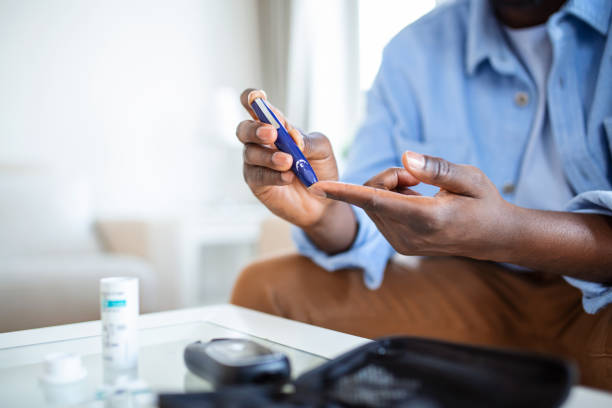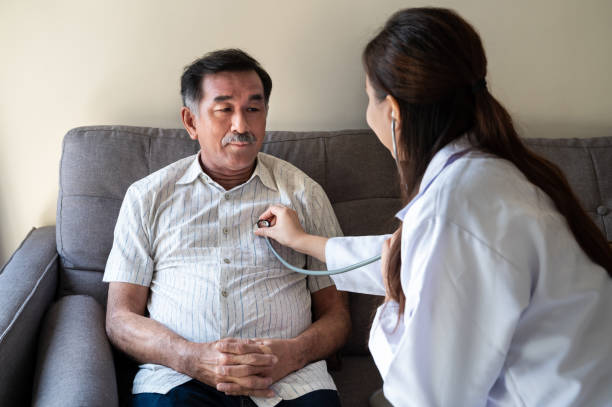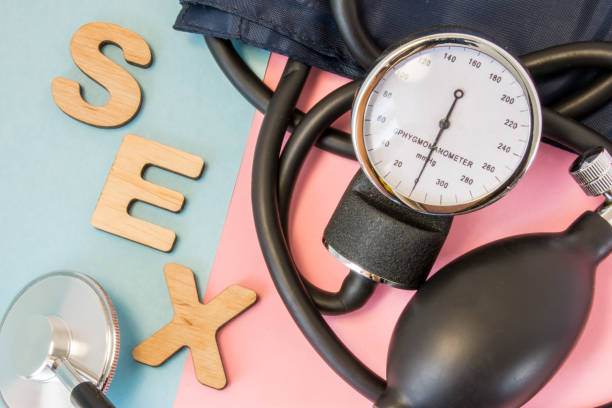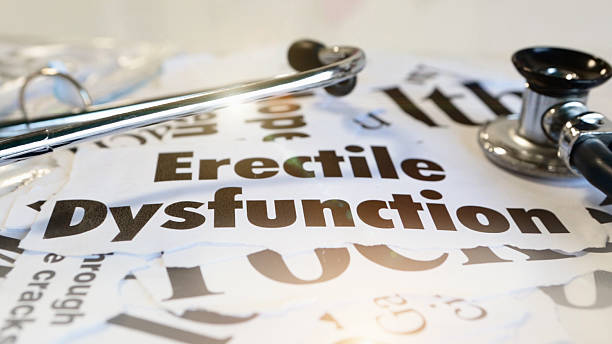Erectile dysfunction (ED) is a common issue that affects millions of men worldwide. While aging can contribute to ED, the most significant risk factors are underlying health conditions such as diabetes, heart disease, and high blood pressure. These conditions interfere with proper blood circulation, nerve function, and overall wellness, making it more difficult to achieve or maintain an erection.
By understanding how these health issues impact sexual function, men can take proactive steps to manage their condition, improve blood flow, and enhance their overall well-being. Prioritizing a healthy lifestyle, including regular exercise, a balanced diet, and proper medical care, can significantly reduce the risk of ED and improve sexual performance.
How Diabetes Affects Erectile Function
Diabetes is a major risk factor for erectile dysfunction (ED) because it damages both nerves and blood vessels essential for a healthy erection. Over time, high blood sugar levels can cause poor circulation and nerve damage (neuropathy), making it difficult to achieve or maintain an erection. Studies show that men with diabetes are significantly more likely to experience ED, especially if their blood sugar levels are not well-managed.

Tips for Managing Diabetes and Improving Erectile Function
Proper diabetes management can help reduce the risk of ED and improve overall sexual health. Here are some key strategies:
✅ Maintain stable blood sugar levels – Follow a balanced diet rich in whole grains, lean proteins, and healthy fats while avoiding processed sugars and refined carbs.
✅ Exercise regularly – Physical activity improves circulation, supports nerve health, and helps regulate blood sugar levels.
✅ Take medications as prescribed – Proper diabetes treatment can prevent further damage to blood vessels and nerves.
✅ Avoid smoking and excessive alcohol consumption – Both can worsen circulation and contribute to ED.
✅ Talk to a healthcare provider – Discuss ED treatment options such as medications, lifestyle changes, or other medical interventions.
By taking control of your diabetes, you can improve both your overall health and sexual function. Prioritizing a healthy lifestyle and working closely with your doctor can help reduce ED symptoms and enhance your quality of life.
The Connection Between Heart Disease and Erectile Dysfunction
Heart disease and erectile dysfunction (ED) are closely linked because both involve poor blood circulation. Atherosclerosis, the buildup of plaque in the arteries, restricts blood flow throughout the body, including to the penis. Since an erection depends on strong blood flow, men with heart disease often experience difficulty achieving or maintaining one.
In fact, ED can sometimes be an early warning sign of cardiovascular problems, making it essential to address heart health for better overall well-being.

How to Improve Heart Health and Reduce ED Risk
Taking steps to improve cardiovascular health can significantly reduce the risk of ED and enhance sexual performance. Here are some key lifestyle changes:
✅ Follow a heart-healthy diet – Eat plenty of fruits, vegetables, whole grains, and lean proteins while avoiding processed foods, excessive sugar, and unhealthy fats.
✅ Exercise regularly – Engage in activities like walking, jogging, swimming, or strength training to boost circulation and support heart function.
✅ Manage cholesterol and blood pressure – High cholesterol and hypertension can damage blood vessels, making it harder to get an erection. Regular checkups and medication (if needed) can help keep these levels in check.
✅ Reduce stress and prioritize sleep – Chronic stress and poor sleep contribute to both heart disease and ED. Practice relaxation techniques like meditation, deep breathing, or yoga to improve overall health.
By prioritizing heart health, men can not only lower their risk of cardiovascular disease but also improve erectile function and overall quality of life.
High Blood Pressure and Erectile Dysfunction
High blood pressure (hypertension) puts extra strain on blood vessels, making them less flexible and reducing blood flow to the penis. Some blood pressure medications can also contribute to ED as a side effect. However, stopping medication without a doctor’s advice can be dangerous.

Managing Blood Pressure to Support Erectile Function:
- Monitor blood pressure regularly and follow your doctor’s advice.
- Reduce salt intake and eat a balanced diet.
- Exercise to improve circulation and overall health.
- Discuss medication options with your doctor if you suspect side effects.
The Importance of Lifestyle Changes for Better Heart and Sexual Health
Adopting a healthy lifestyle is one of the most effective ways to improve both cardiovascular health and erectile function. Since conditions like high blood pressure, obesity, and diabetes are closely linked to erectile dysfunction (ED), making positive changes can lead to significant improvements in overall well-being and sexual performance.
Key Lifestyle Changes to Improve Heart Health and ED
✅ Maintain a healthy weight – Excess body fat, especially around the abdomen, increases the risk of heart disease and ED. A balanced diet and regular exercise can help manage weight effectively.
✅ Quit smoking – Smoking damages blood vessels, reduces circulation, and increases the risk of ED. Quitting can lead to improved blood flow and better erectile function.
✅ Reduce alcohol intake – Excessive alcohol consumption can lower testosterone levels and impair nerve function, making it harder to achieve and sustain an erection. Moderation is key.
✅ Manage stress effectively – Chronic stress raises cortisol levels, which can negatively impact heart health and sexual performance. Mindfulness, deep breathing, and exercise can help reduce stress.
✅ Get regular check-ups – Routine medical visits allow for early detection and management of conditions like high blood pressure, high cholesterol, and diabetes—key risk factors for both heart disease and ED.
By making these lifestyle changes, men can improve their heart health, enhance blood circulation, and reduce the risk of erectile dysfunction. Prioritizing overall well-being leads to a healthier, more fulfilling life.
When to See a Doctor for Erectile Dysfunction
Occasional difficulty with erections is normal, but if you experience erectile dysfunction (ED) regularly, it may be a sign of an underlying health issue such as heart disease, diabetes, or hormonal imbalances. Seeking medical advice is important because ED can sometimes be an early warning sign of serious health conditions. A doctor can help identify the cause and recommend the best treatment options tailored to your needs.
Why Seeking Medical Advice Matters
✅ Identify underlying health conditions – ED is often linked to issues like high blood pressure, high cholesterol, or low testosterone levels. Addressing these can improve both sexual function and overall health.
✅ Explore effective treatment options – Doctors can recommend lifestyle changes, medications like phosphodiesterase inhibitors (e.g., Viagra, Cialis), or other therapies such as testosterone replacement or counseling.
✅ Improve overall well-being – Treating ED often involves improving cardiovascular health, reducing stress, and adopting a healthier lifestyle, leading to long-term benefits.
If you’re experiencing ongoing erectile difficulties, don’t hesitate to consult a healthcare provider. Early diagnosis and treatment can help restore confidence, improve intimacy, and enhance your quality of life.
Final Thoughts: Taking Control of Your Health and Erectile Function
Erectile dysfunction (ED) is often linked to chronic health conditions like diabetes, heart disease, and high blood pressure. These conditions can restrict blood flow and damage nerves, making it more difficult to achieve or maintain an erection. However, the good news is that by managing these health issues through lifestyle changes and proper medical care, you can improve both your overall well-being and sexual function.
Take Action for Better Health and ED Management
✅ Adopt a heart-healthy lifestyle – Eating a balanced diet, exercising regularly, and maintaining a healthy weight can boost circulation and support erectile function.
✅ Monitor and manage chronic conditions – Keeping blood sugar, blood pressure, and cholesterol levels under control can prevent further damage to blood vessels and nerves.
✅ Seek medical advice – If you’re struggling with ED, consult a doctor to identify the underlying cause and explore treatment options, from medications to lifestyle adjustments.
By prioritizing your health, you can enhance your quality of life, improve intimacy, and maintain better erectile function for years to come. Taking proactive steps today will lead to a healthier, more fulfilling future.

